People
Affiliated researchers

How do you introduce yourself?
I’m Talita Greyling, the director of the Centre for Wellbeing, AI and Social Impact and professor at the School of Economics at the University of Johannesburg. My research lies at the intersection of well-being economics, Big Data, and artificial intelligence. Among others, I lead the Gross National Happiness .Today project, which measures real-time happiness using 4IR methods across multiple countries.
What's on top of your research agenda right now?
Real-time well-being indices: Advancing AI-driven measures of happiness to now-cast well-being measures using large-scale search and social media data.
Predictive modelling: Applying machine learning models to delve deeper into data to understand what makes people and nations happy and satisfied with their lives. I also look at the inverse: what can be achieved if people are happy, such as higher productivity levels, better health, and being more altruistic.
Policy integration: Translating real-time happiness insights into actionable policies through collaborations like the EU Horizon WISER project and global partners.
How do you see that your research connect to the CWWH?
My work complements the CWWH’s mission to understand and promote flourishing and create better societies. By combining happiness economics, AI, and behavioural science, I contribute tools that track societal well-being dynamically, supporting evidence-based policies that make happiness measurable, comparable, and actionable.
What makes you happy?
Discovering new patterns in data that reveal how people truly feel and explain previously unknown phenomena, collaborating across continents to make well-being research more inclusive, and developing the young research talent in Africa. On a personal level, time spent with my family, sharing holidays and experiences and enjoying the unique sense of humour of my children and my husband.

How do you introduce yourself?
I mainly describe myself as a cross-cultural psychologist, though honestly, I'm a bit of an itinerant academic wandering from
What's on top of your research agenda right now?
My main focus at present is the Global Flourishing Study, for which I've recently become the project manager, and for which I'm leading around a dozen papers, focusing on topics including happiness, inner peace, life balance, values, beauty, gender, and Buddhism
How do you see that your research connect to the CWWH?
My research is oriented around happiness, wellbeing and flourishing, usually with some kind of cross-cultural angle, but also incorporating socio-political and systemic dynamics, which aligns very nicely with the CWWH
What makes you happy?
Above all, being with my family, especially if that also involves spending time in nature, eating tasty food, and listening to good music

How do you introduce yourself?
I’m Stephanié Rossouw, a well-being economist, Associate Professor and Deputy Head of the School of Social Sciences and Humanities at Auckland University of Technology. I also serve as Editor-in-Chief of the Journal of Happiness Studies, President of the International Society for Quality-of-Life Studies (ISQOLS), and I’m a member of the World Wellbeing Panel. My work explores how data, technology, and societal dynamics shape happiness and well-being across contexts, including New Zealand, Sub-Saharan Africa, Europe, and the UK.
What's on top of your research agenda right now?
There are many exciting projects, but the highlight is using Google Trends and Big Data to track national happiness in real time. We’re also examining how social capital and digital access influence life satisfaction in Africa and how social media shapes well-being and optimism in the MENA region. A major line of work investigates the “cheerful discontent” paradox in Africa, showing how people can remain emotionally positive despite economic hardship, offering new insights that challenge Western-centric views of happiness and resilience.
How do you see that your research connect to the CWWH?
My research advances the Center’s mission by providing data-driven insights into emotional resilience, inequality, and subjective well-being, translating international findings into evidence-based policy that supports human flourishing.
What makes you happy?
My faith in Jesus, spending time with my husband of 15 years, and our two wonderful boys (14 and 11). Reading at least one good book each week, sharing great food, and having deep, joyful conversations with friends all fill me with gratitude and happiness.

How do you introduce yourself?
A happy person studying why I and other humans are happy. I am employed as a PhD candidate at Oslo Metropolitan University but have several academic homes, including the Harmony Lab in Lund and the World Well-being project in the U.S. My three research pillars include well-being, personality and language analysis.
What's on top of your research agenda right now?
I do several nations-based well-being projects, including country-specific papers about Sweden, Norway and the Nordic region, as well as studying friendship and well-being across countries around the world. I also work with projects where we facilitate language analysis for social science researchers.
How does your research connect to the CWWH?
Well, my research is about well-being to a large extent so the connection comes quite naturally. Then, I also do language analysis in my day-to-day life which makes for a good connection with the CWWH as CWWH has a lot of language data and are interested in analysing it.
What makes you happy?
My friends, family and other close relationships are everything. I also become happy by playing around at festivals, exercising and pushing myself to achieve challenges.
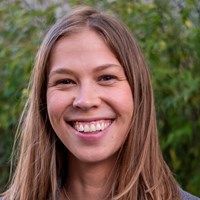
How do you introduce yourself?
I am a PhD student at Karolinska Institutet, affiliated with CWWH.
What's on top of your research agenda right now?
My research focuses on how the reconstruction of schoolyards in Stockholm can promote children's physical activity and health, while also exploring how integrating greenery into these environments can help mitigate the impacts of climate change in urban areas.
How do you see that your research connect to the CWWH?
Increasing physical activity and implementing more greenery in urban areas are linked with enhanced well-being. Our research also explores related outcomes, such as children’s behavioural well-being.
What makes you happy?
Spending time with family and friends, preferably with some good music, sunshine, and a great drink in hand!
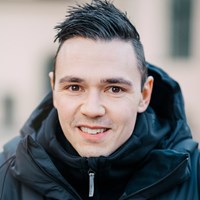
How do you introduce yourself?
I’m Dr. Daniel Berglind, Associate Professor at Karolinska Institutet. I blend urban planning, public health and behavioural science to design greener schoolyards that spark kids’ play, movement and wellbeing.
What is on your research agenda right now?
-
Green Schoolyards in Action: Testing how natural play areas—logs, gardens and outdoor classrooms—boost children’s daily activity and mood using wearables and simple surveys.
-
City Policy Guides: Partnering with municipalities to draft easy-to-use toolkits for planners and schools to weave green spaces into city life.
-
Long-Term Health Tracking: Following cohorts of children to see how early exposure to nature shapes their physical and mental health over the years.
How do you see your research connecting to the Center for Wellbeing Welfare and Happiness?
My work feeds directly into the Center’s mission by showing how built environments affect human flourishing. I combine data on movement and mood with design principles, helping the Center develop actionable policies that create happier, healthier cities from the ground up.
What makes you happy?
Watching kids laugh and invent games in green spaces, bouncing ideas off a diverse research team, and seeing our recommendations turn into real changes that help children thrive. And of course, being a gymnastics and track&field coach for my 3 princesses!

How do you introduce yourself?
I am an Associate Professor at the Stockholm School of Economics, working on several research projects exploring how new digital technologies are reshaping the role of the (human) expert and the future of work. I also teach leadership/management and organizational transformation and change in the SSE Executive MBA program and at SSE Executive Education, and have been a visiting researcher at Oxford University and Stanford University.
What is on your research agenda right now?
My research centers on “the future of the (human) expert”. Given the rapid technological developments and new, hybrid, man-machine-infused ways of working, the traditional role of human experts is changing. I am curious how individuals and organizations respond to these changes, what actions they take and why, and how that, in turn, affects their roles and identities. To study this, I focus empirically on elite professional service firms.
How do you see your research connecting to the Center for Wellbeing Welfare and Happiness?
Elite professional service firm often attracts highly ambitious, high-performing, people with exceptional talent. While their work can be very rewarding, both from an intrinsic and extrinsic perspective, we also know that many struggle throughout their careers with stress, depression, and anxiety. I am interested in what we can do in organizations to increase their wellbeing, welfare, and happiness, and create a sustainable work-life where they can thrive.
What makes you happy?
Many things! Apart from being with my loved ones, or immersed in music, I have noticed that I always get a little happier when I come across a park in a city.

How do you introduce yourself?
I’m a Professor at the Department of Strategy and Management at the Norwegian School of Economics, and an affiliated researcher at CWWH
What is on your research agenda right now?
Currently, huge piles of happiness-related projects are on my desk. Right now, the topic of time is probably what occupies me the most.
How do you see your research connecting to the Center for Wellbeing Welfare and Happiness?
The stars are perfectly aligned: Almost all my current research projects are either directly or indirectly linked to the Center.
What makes you happy?
Being with my family, travelling, experiencing new stuff (food, places, music, people) and not least; researching happiness at CWWH.
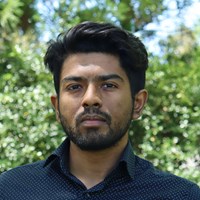
How do you introduce yourself?
I am a judgment and decision-making researcher. I run experiments to study things people do, believe, and prefer.
What is on your research agenda right now?
Right now, I am studying who people are more likely to cheat, discrepancies between beliefs and reality, and how people think about time.
How do you see your research connecting to the Center for Wellbeing Welfare and Happiness?
How people think about time influences many consequential decisions, including those related to psychological well-being.
What makes you happy?
Street food, museums, and discussing ideas with friends.
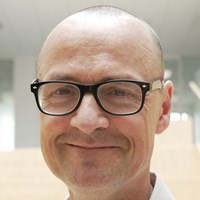
How do you introduce yourself?
I am an associate professor at the Department of Political Science and Public Management at the University of Southern Denmark.
What is on your research agenda right now?
Currently, I do research on the effect of major Danish public policies on rural development in Denmark. A general top research interest of mine is to study the wellbeing effects connected to the urbanization of societies.
How do you see that your research connect to the CWWH?
I do research on the so-called rural/urban happiness paradox, that is, research on why people living in cities report lower happiness than people living in rural areas. Studying spatial aspects of wellbeing is well-connected to the aims of CWWH.
What makes you happy?
My wife and our daughter, travelling to new places, and going on my weekly runs in the forest.
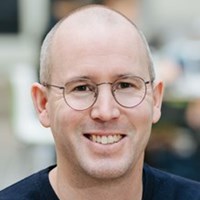
How do you introduce yourself?
I am a researcher at heart. Primarily I look at how consumers respond to various forms of digital communication, particularly in social media. In doing so, I investigate various forms of marketing, but also political communication and more nefarious content such as disinformation.
What is on your research agenda right now?
I’m currently working on projects related to influencer marketing, propaganda surrounding the Russian invasion of Ukraine, and a large study on product returns in e-commerce. Additionally, I’m collaborating with the Center for Wellbeing, Welfare, and Happiness on a project exploring the relationship between happiness and perceptions of income levels.
How do you see your research connecting to the Center for Wellbeing Welfare and Happiness? Beyond the happiness and income study, I’m also examining how social media and disinformation contribute to stress and unhappiness. At the same time, I’m exploring interventions that could help mitigate these negative effects.
What makes you happy?
To see my family thrive.
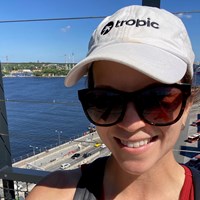
How do you introduce yourself?
Professor Jordan Etkin
What is on your research agenda right now?
My current research focuses on goals, motivation, and personal resources (time, money, etc.). One question I am particularly interesting in is what motivates people to quantify their personal behaviors or time expenditures, and the implications of doing so (e.g., for happiness and wellbeing).
How do you see your research connecting to the Center for Wellbeing Welfare and Happiness?
Ultimately, people want to be happy, so most goals that people set, things that they do, or outcomes they are motivated to achieve, serve this broader goal of experiencing happiness and wellbeing. By studying things like how track and manage themselves and their personal resources, in the service of their goals, we can uncover important insights about how these types of phenomena undermine or contribute to wellbeing.
What makes you happy?
My children, my husband, our dog Zoe; Traveling, being outdoors, long walks with friends, playing tennis; cooking and eating, learning about and drinking good wine!

How do you introduce yourself?
I’m a professor of Developmental Psychology at the Uppsala Child and Babylab, Department of Psychology, Uppsala University.
What's on top of your research agenda right now?
We study the contextual factors that foster child development in different parts of the world (including Bhutan, Paraguay, Sweden, Turkey, Uganda, Taiwan, and Zimbabwe), while also conducting basic research on infants’ social and cognitive abilities using eye tracking, EEG, and motion capture.
How do you see that your research connect to the CWWH?
Children’s positive development depends critically on their own wellbeing and happiness, as well as that of their parents and the wider community that surrounds them.
What makes you happy?
Spending time with my family, and all forms of sweet bread.. bullar, kakor, tårtor…

How do you introduce yourself?
I aim to make academic contributions that elevate the wellbeing in Japan, drawing inspiration from ideal Nordic models of wellbeing. In the near term, I hope to realize this vision through collaborative efforts with fellow CWWH members.
What is on your research agenda right now?
My current research, funded by Japan’s Grants-in-Aid for Scientific Research (KAKENHI), focuses on developing an innovative method for evaluating wellbeing in childcare settings using behavioral sensing technologies.
(https://kaken.nii.ac.jp/ja/grant/KAKENHI-PROJECT-25K00781/)
How do you see that your research connect to the CWWH?
At Nishiura Lab, I apply educational and health psychological methodologies to address social issues, seeking insights from Nordic wellbeing approaches via collaboration. https://knishiura777-dotcom.github.io/Nishiura-Lab/
What makes you happy?
When everyone wins, I win too—and that sense of fulfillment extends to society as a whole.
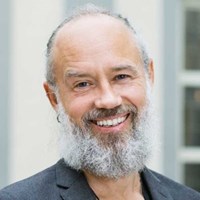
How do you introduce yourself?
My passion is contributing to people's inner growth. I thrive on bridging theory and practice—through research, teaching, and working with managers and organizations. To me, these form a whole; none are sufficient on their own.
What is on your research agenda right now?
My research is centered on inner development at work, exploring three key areas: posttraumatic growth, the role of connection in leadership, and mindfulness in organizations.
How do you see your research connecting to the Center for Wellbeing Welfare and Happiness?
This research sheds light on fundamental aspects of well-being, including how individuals grow through adversity, how people cultivate greater presence and empathy at work, and how leaders build authentic, resilient relationships.
What makes you happy?
I find happiness in the gaps of everyday life. These in-between moments create a sense of presence, freedom, and possibility. There, a tingling feeling of joy rises in my belly.
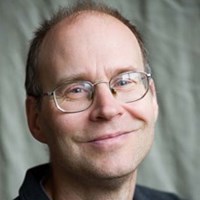
How do you introduce yourself?
I started out as a health economist, then moved on to experimental and behavioral economics, and thereafter genoeconomics, and I’m now mainly working on metascience.
What is on your research agenda right now?
Mainly work on how to evaluate and improve the credibility of science, also referred to as metascience.
How do you see your research connecting to the Center for Wellbeing Welfare and Happiness?
Credible science will make the taxpayers happier.
What makes you happy?
Thinking about retirement.

How do you introduce yourself?
I’m Dr. Markus Wartiovaara, Professor of Practice at Hanken School of Economics. Director of Hanken Business Lab with entrepreneurial pre-incubation, incubation and acceleration services. Teacher on "Entrepreneurial Leadership" for 15+ years. Chairman of the board, board professional and advisor for various family, growth, start-up businesses and foundations. Founder of the Nordic Happiness Summit gathering leading thinkers and actors on well-being from across the Nordics.
What's on top of your research agenda right now?
- I am engaged in a cross-disciplinary research project on Happiness, Democracy and Healthy Life expectancy.
- My long-term interest is in entrepreneurial well-being involving whole person approaches to human flourishing and growth.
How do you see that your research connect to the CWWH?
I am driving research and development in the domain of Nordic entrepreneurial well-being. Our practice and community-based approach connects with the Center through our Nordic Happiness Summit and various collaboration activities.
What makes you happy?
Human progress and kindness.

How do you introduce yourself?
My name is Olivia Kim, and I am a 4th year PhD student at NHH.
What is on your research agenda right now?
I am currently finishing up my dissertation, titled ‘Happiness and Morality’ where I have 4 articles related to topics of morality, well-being, and happiness.
How do you see your research connecting to the Center for Wellbeing Welfare and Happiness?
I am also working on some projects related to i-frame and s-frame policies, and my projects in general deal with questions of self-other relationships and evaluations related to well-being goals.
What makes you happy?
Spending time with people I care about and having new experiences makes me happiest, and when those are combined, that is probably the best

How do you introduce yourself?
I work as an Assistant Professor at Karolinska Institutet, where I primarily conduct research on meditation and psychedelics.
What is on your research agenda right now?
My research agenda is both broad and focused, united by a central aim: to reduce suffering in the world.
How do you see your research connecting to the Center for Wellbeing Welfare and Happiness?
My research has a clear connection to the Center for Wellbeing, Welfare, and Happiness through several ongoing studies. For example, in one of these studies, we use machine learning to identify which types of meditation are most effective for different individuals, with the goal of optimizing personalized strategies for increased wellbeing.
What makes you happy?
My niece.

How do you introduce yourself?
My name is ... and last job was as Professor of Philosophy and Management at Copenhagen School of Management
What is on your research agenda right now?
I am currently a visiting researcher at Ca Foscari University in Venice where I am investigating the possible role of Peosin in entrepreneurship. It is a development of a conference I organized/took part in on trade in November 2024
How do you see your research connecting to the Center for Wellbeing Welfare and Happiness?
I believe that contact with different forms of art and poetry can help us find doors into that mysterious thing we call “happiness”. For example, this is how SSE students connected with art and world-famous artist Michelangelo Pistoletto in November in the Atrium
What makes you happy?
Philosophizing with SSE students...that's what I do in the course:
Business Philosophy BE924..... warmly welcome

How do you introduce yourself?
Hi, my name is Ragnhild. Yes, I know – it is difficult to pronounce. It is a Norwegian viking name, meaning warrior woman and includes GNH in the middle (Gross National Happiness) 😊
What's on top of your research agenda right now?
How we can contribute to good lives and a more even distribution of wellbeing. So, I am particularly engaged in investigating causal processes and wellbeing-promoting interventions
How do you see that your research connect to the CWWH?
I think our objectives are very much aligned, partly overlapping and partly complementary.
What makes you happy?
I think happiness usually arise from engaging meaningful activities such as the 5Ways to wellbeing: connecting, being physically active, being aware and taking notice, keep learning and giving/contributing to others

How do you introduce yourself?
Suzy!
What is on your research agenda right now?
I am hoping to answer whether individual values change over time, or just our level of expressing them.
How do you see your research connecting to the Center for Wellbeing Welfare and Happiness?
Wellbeing and happiness are inextricably linked to authenticity, the discovery of which is the focus of my research.
What makes you happy?
A winter hike in the woods with my children, grandchildren, and many dogs in tow.
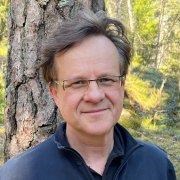
How do you introduce yourself?
I work as a physician within Region Stockholm and as a researcher at Karolinska Institutet, where I also serve as the director of the Center for Social Sustainability.
What is on your research agenda right now?
My current research explores the links between music, natural environments, and health, as well as how urban planning can integrate health insights. I also study socioeconomic factors in sustainable behavior, the effects of psychedelics and mind-body techniques on health, and the ethical challenges of AI in healthcare.
How do you see your research connecting to the Center for Wellbeing Welfare and Happiness?
Our research connects to Wellbeing, Welfare, and Happiness by exploring how urban planning, music, and natural environments impact well-being. We also examine the role of mindsets in sustainable behavior and analyze the risks and opportunities of AI in relation to well-being.
What makes you happy?
My children & wife, family, friends, music, art, nature, adventures, and the opportunity to work as a physician, researcher and writer.



Coming soon!

Coming soon!

Coming soon!
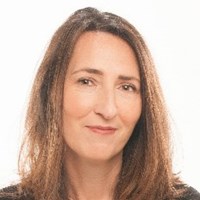





What is on your research agenda right now?
• Ecological sustainability and wellbeing in relation to consumption: This agenda includes several projects, such as the use of car-sharing services, consumption of organic food, second-hand consumption, and sustainable retirement investments.
• Long-term quality of life tracking for people with disabilities: Since 2003, I’ve followed individuals in the Gothenburg area who receive at least 20 hours of personal assistance per week, evaluating both their satisfaction with service providers and their overall quality of life.
How do you see your research connecting to the Center for Wellbeing Welfare and Happiness?
My research applies psychological theory to explore individual differences in wellbeing and the types of consumption that contribute to happiness. It also examines what real sustainability means for people, business, and society — and how this might support a better life for everyone in the long run (when we are all dead).
What makes you happy?
Alissa – my lovely four-year-old daughter. Taking her to ballet class and watching soccer games with her, cheering together for the Orange team with a big "Hip Hip Holland!"
I also find happiness in things that go beyond the basic — in meaning, connection, and small moments of joy.







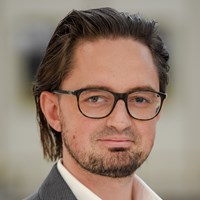


Staff:
Micael Dahlen
Center Director
Professor of Wellbeing, Welfare & Happiness
E-mail: Micael.Dahlen@hhs.se
Fredrik Lange
Executive Director
Assistant Professor
E-mail: Fredrik.Lange@hhs.se
John Karsberg
Business Director & External Relations
E-mail: John.Karsberg@hhs.se
Tel:+46 70 461 55 39
Sara Rosengren
Senior Advisor
Professor, Head of Center for Retailing
E-mail: Sara.Rosengren@hhs.se
Nora Hansson Bittár
PhD Student
E-mail: nora.hanssonbittar@hhs.se
Sara Zareparvarazad
Project Manager
E-mail: Sara.Zareparvarazad@hhs.se
Ella Victorin
Project Manager
E-mail: Ella.Victorin@hhs.se